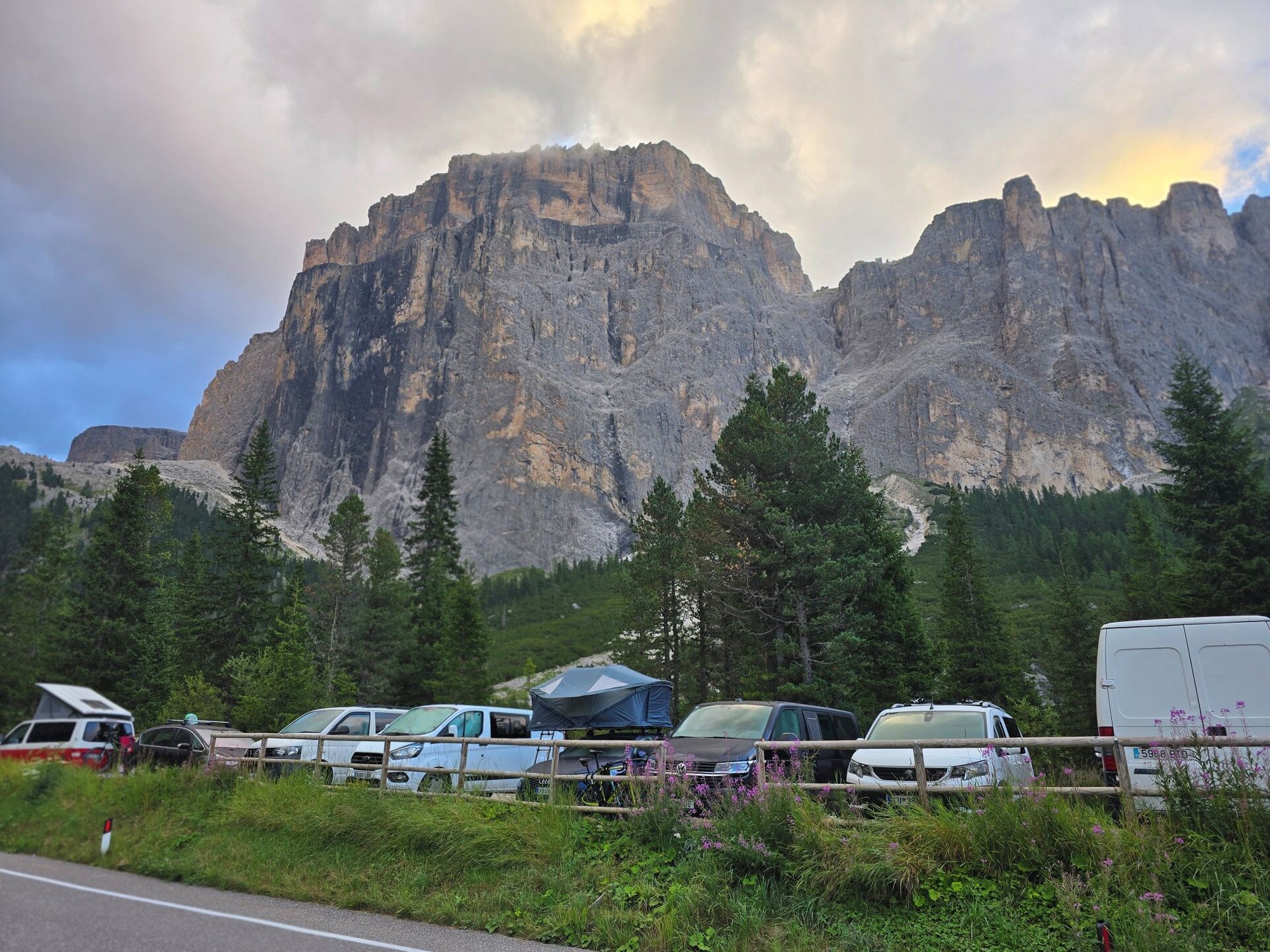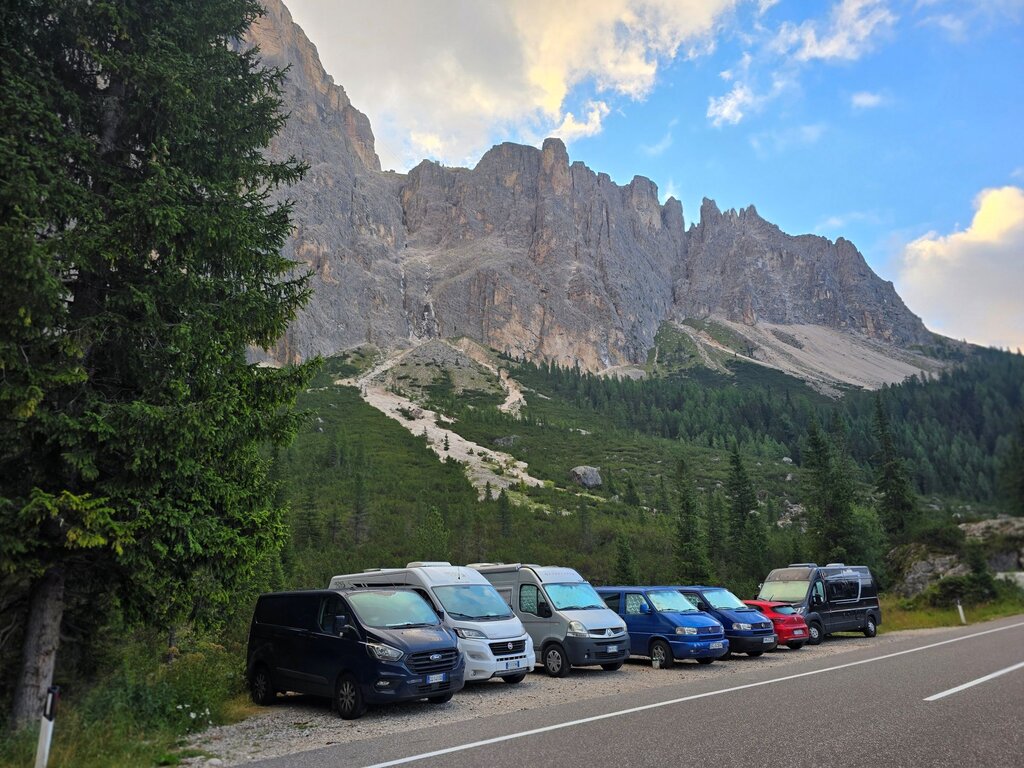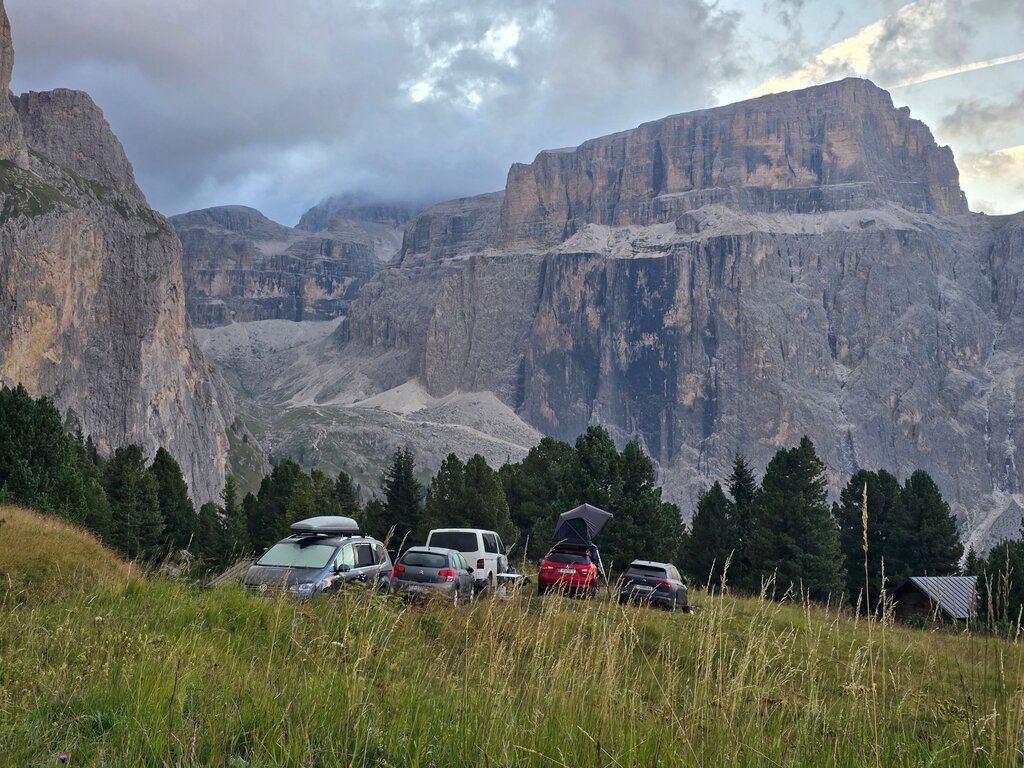There are 2,389 parking spaces, including open spaces and free car parks (out of a total of 235 open spaces; 2,979 parking spaces, 590 of which are paid, distributed across four car parks between San Pellegrino, Costalunga and Pordoi), available on the roads leading to the Dolomite mountain passes of the Val di Fassa. Many of these open spaces (with gravel and/or grass surfaces) along the winding roads of the passes are used for free camping on summer nights (generally prohibited in Trentino, especially near tourist facilities; the only exceptions allow bivouacs for a maximum of 24 hours in areas not specifically prohibited by the competent authorities or occasional and free hospitality granted by a private individual near their home). These are areas without facilities, toilets, rubbish bins or drinking fountains, which are inundated during the peak tourist season, aided by the absence of regulations, thus encouraging behaviour that is far from the sustainable and environmentally friendly tourism promoted by the valley.
A summary mapping of open spaces and parking spaces and their night-time occupancy (with inspections in July and August before 7 a.m.) between Sella, Pordoi, the Pian Schiavaneis junction, Fedaia and Costalunga, the Val di Fassa Tourist Board has been collecting data on the flow of vehicles travelling on the only road in the valley and on the roads leading to the mountain passes. "We have identified the most critical situation on the road connecting Canazei to Passo Sella", explains Nicolò Weiss, director of Val di Fassa tourist board, who shares a vision of protecting the territory with the valleys surrounding the Sella group, where the occupation of roadside areas has become increasingly significant from the end of July until the middle weeks of August, when over 50% of the 283 spaces were occupied at night. These are areas that are not suitable for overnight stays. Therefore, while during the day some tourists use them to leave their cars for a few hours and reach some high-altitude locations, at night the absence of specific rules or prohibitions encourages the occupation of places that in most cases generates waste, dirt and the spread of behaviour that is inappropriate in a delicate environment such as the Dolomites.
In addition to cars, which remain the most conspicuous presence (with people spending the night there, and not just climbers who traditionally rest for a few hours to be ready at dawn to climb the Dolomite walls), there are also several campervans and an increasing number of vans, camperised vans and cars. This is a trend that has taken hold in recent summers, encouraged both by the trend for “wild tourism” and by the emergence of camper van rental companies and dedicated websites and apps, which provide information and advice on finding and sharing suitable places to stop, stay overnight or enjoy activities such as picnics or parking in nature. These apps provide maps, photos and reviews to an ever-growing community of travellers, also giving them the opportunity to contribute information on various points of interest.
"Unfortunately, the information about our area is not always accurate, which is why we have tried, with little success, to contact camper van rental companies and the managers of some apps". The Fassa Tourist Board has invited companies and managers to collaborate in promoting overnight stays exclusively in designated and authorised areas, discouraging parking in unsuitable places that are generally neither sustainable nor safe. "The aim is to provide reliable and up-to-date information, thus encouraging a more informed choice of parking areas and responsible behaviour, in order to contribute to the protection of the environment and the enhancement of the local area and the services it offers." Of course, this intervention alone is not enough to eradicate inappropriate behaviour. “What is needed,” concludes Weiss, "is the availability of car parks, such as those at the main ski lifts, which, for a fee, allow night-time access for motorhomes, vans and lorries when our campsites are full. These large car parks are located in villages, where it is easy to find bars, restaurants, shops and, above all, public toilets, fountains and litter bins, thus avoiding the scattering of rubbish and other waste in the woods and streams at high altitude. Last but not least, it is essential to have a system for monitoring the passes."




